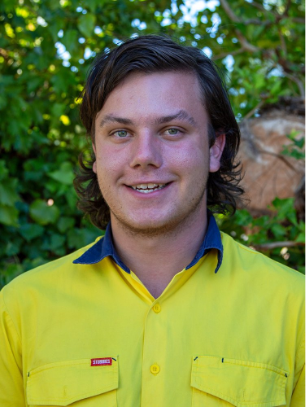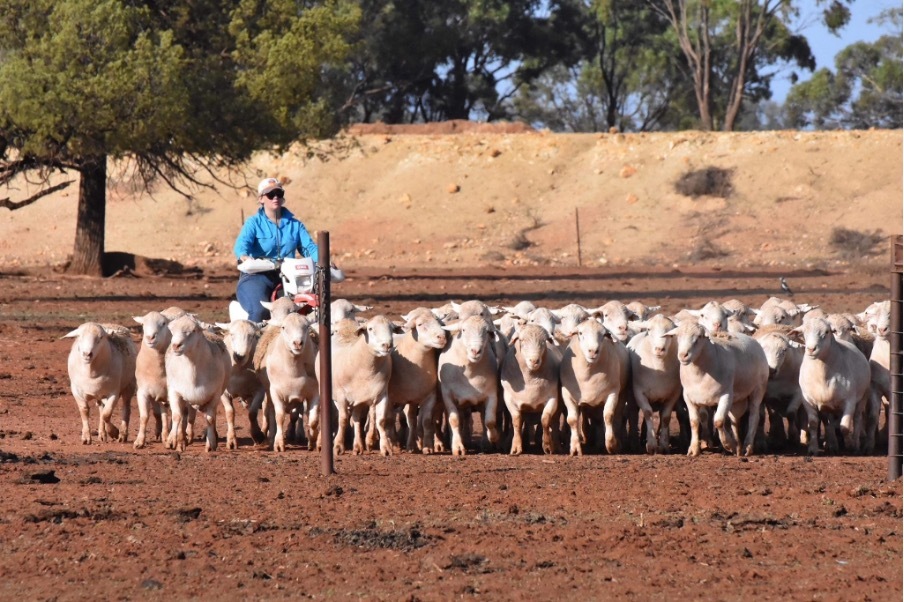Higher education key to keeping kids in the country
Lucy Kirk
25 September 2022, 3:40 AM
 Emily Mosely is studying a Bachelor of Agricultural Business Management at Charles Sturt University in Wagga Wagga, and is excited to soon bring her skills back to her hometown of Cobar.
Emily Mosely is studying a Bachelor of Agricultural Business Management at Charles Sturt University in Wagga Wagga, and is excited to soon bring her skills back to her hometown of Cobar. Emily Mosely was just 12 years old when she drove out the dusty front drive of her family farm near the western New South Wales town of Cobar in search of a quality education.
Fortunately, with her sights now set on a career in agriculture, Cobar is unlikely to permanently lose her to alternative career and employment opportunities in a bigger, better resourced town. But that’s not the story for many of her fellow graduates.
“With agriculture as a career path, coming home is easier for me than for people in other industries,” said Emily.
Fewer employment options, higher proportions of lower socioeconomic residents and a lack of essential services in regional areas have long been drivers of rural decline and deterrents for graduates; creating a significant cost to regional communities.
And it’s a cruel circle.
In a 2006 publication, the OECD highlighted the cyclical nature of rural decline, in which a lack of critical services and educational opportunities supported further out-migration and therefore shrinking populations.
However, Emily believes the solution lies firmly in the development of stronger partnerships between rural communities and education providers.
“I certainly feel that if we can support people to go away to study and then help them come back, bringing those services back with them, then there's got to be something in that,” she said.
A potential pathway towards developing stronger relationships was recently uncovered by The Country Education Foundation (CEF).
They found that by partnering a local business with a tertiary education provider, they were able to provide financial support for students to study and then guarantee their employment once they returned.
Coleambally Irrigation Co-Operative Limited (CICL) was the first to test this model with local student, George Payne. George commenced his agriculture degree in 2019 at the University of Melbourne with help from CEF Coleambally-Darlington Point. As intended, after he graduated, George returned home to begin working with CICL.
“I loved having the security of knowing that I had a job after I had graduated,” said George.
“This has been great as I have been able to utilise my skills and bring them back to my regional area,” he said.

PHOTO: George Payne was awarded the inaugural CICL Grant Latta Bonded Scholarship to support his studies at Melbourne University. George now has full time employment in his hometown with Coleambally Irrigation Co-Operative Limited (CICL).
Proof of the success of this pathway to combating rural decline has led many to question why more universities aren’t jumping on board.
And, while many higher education providers continue to invest in assisting lucrative International students find placements in Australia, struggling communities are arguing that their priorities may be in the wrong place.
Executive manager of the University of Technology Sydney’s (UTS) student equity team, Sonal Singh, says that while UTS is committed to improving educational outcomes in regional areas, there are limitations to consider and other factors at play.
“Major concerns for regional students are mostly to do with accommodation, travel and finances,” she explained.
“We’ve also found that, for rural students, connection to place is really important so many choose not to access higher education because they feel guilty for leaving home.”
Sonal says that the needs of international students differ greatly in that they are often from asylum seeker backgrounds or are seeking a higher quality of education, and that it is the unique needs of each group that dictate the approaches the university takes to help.
An announcement made earlier this year by Regional Education Minister Bridget McKenzie, revealed the launch of a program that UTS is leading in partnership with the Country Universities Centre (CUC) to help meet the unique needs of rural and regional students.
“People in regional Australia are less than half as likely to complete a university degree compared with people in cities,” said Minister McKenzie.
“We want to reverse this trend by creating localised partnerships between regional communities and tertiary education providers, to engage regional students and create accessible ways for them to access higher education,” she said.
The program will see a collaboration of 25 universities and 16 Regional University Centres across Queensland, NSW, ACT and Victoria join forces to build tailored outreach programs for rural students.
“This partnership is very much about talking to the community to find out what the challenges are and then designing our outreach programs based on that,” said Sonal.

PHOTO: UTS will lead 24 other universities in a partnership with the Country Universities Centre and 16 local communities to encourage more people from the regions to go to university.
While the program is still in phase one of community consultation, the latest census data on projected population decline suggests that its potential offerings to regional communities shouldn’t be ignored. And, while students like George and Emily have been lucky, they want to see more students be granted the same opportunities.
“I think it’s really important to expand your experiences, knowledge and understanding,” said Emily.
“For me, that’s only made me want to go home more because it’s made me realise how important home is to me.”

PHOTO: Emily Mosely has a strong connection to her family farm near Cobar (pictured), but she knows the true value of education and wants more rural students like her to be granted the same opportunities she has.
Programs that bring education to rural communities and provide pathways for access have, therefore, not only shown a great deal of promise for reversing the trend of rural decline, but given hope to a generation of country kids who refuse to be taken out of the country.




